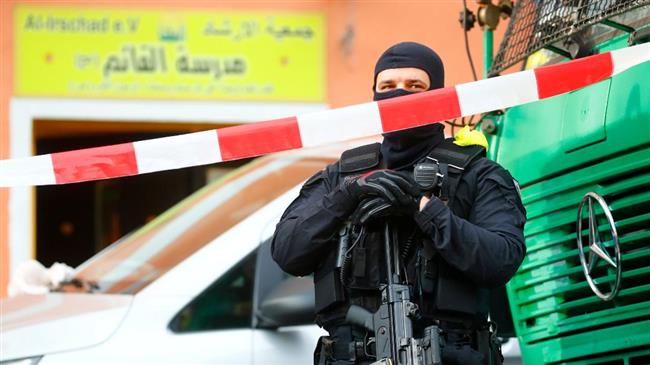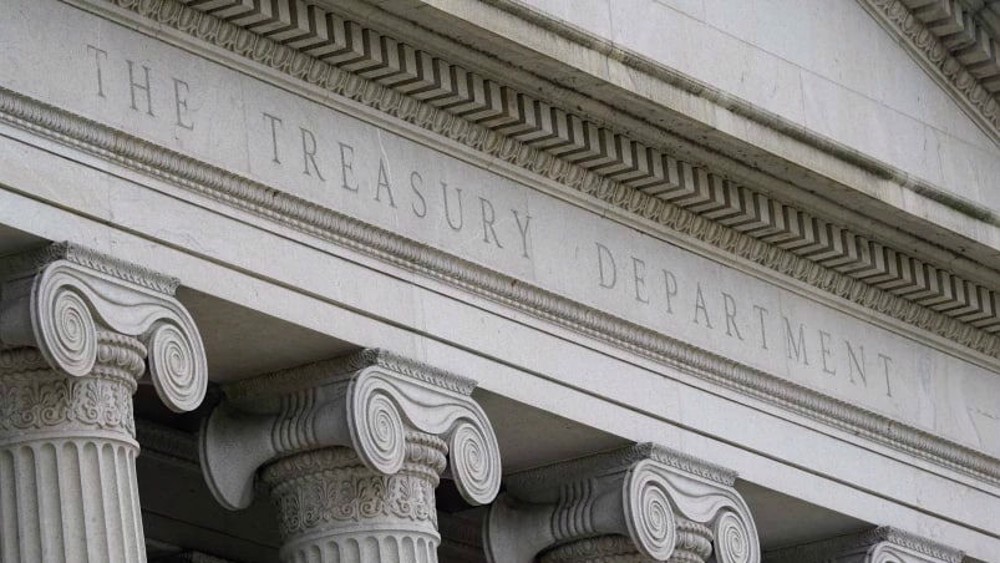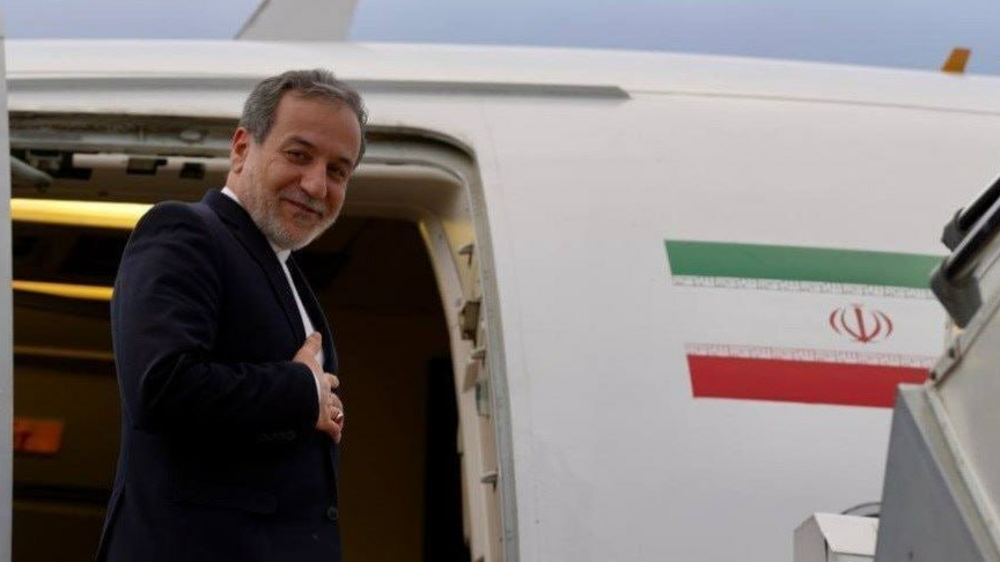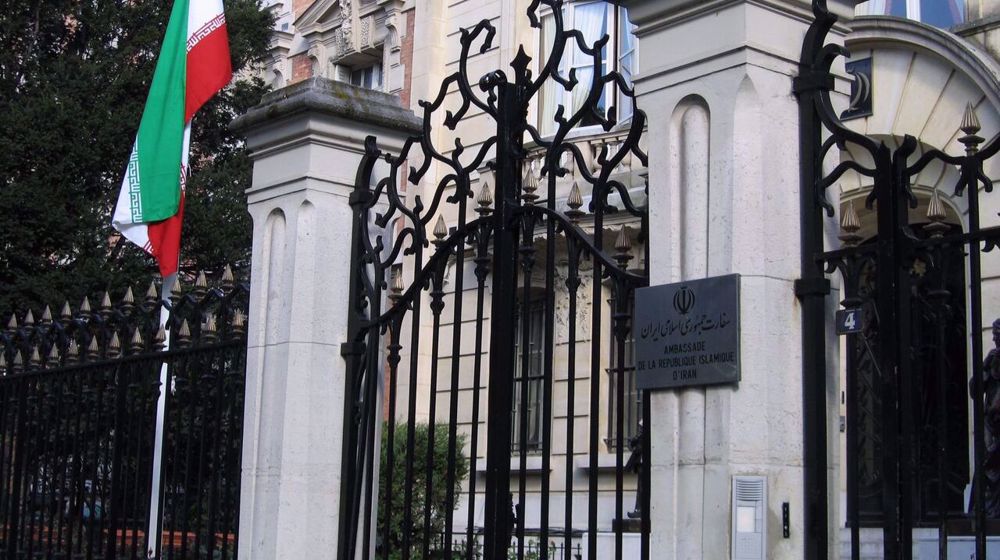Germany labeling Hezbollah terrorist out of fear from ‘child-killing’ Israel: Iran’s security chief
The secretary of Iran's Supreme National Security Council (SNSC) has lambasted Germany for blacklisting Lebanon’s resistance movement Hezbollah out of fear of the “child-killing” Israel while highlighting Berlin’s own terrorist actions.
“Sellers of chemical weapons to Saddam have become human rights defenders, out of fear of their child-killing friend, [and] called Hezbollah, terrorist,” tweeted Ali Shamkhani, referring to Israel.
Sellers of chemical weapons to Saddam have become human rights defenders, fearing of their child-killing friend, called #Hezbollah, terrorist. #ISIS did not reach Europe because it was stuck behind the walls of #Resistance. The mask fell down the face of terrorism supporters.
— علی شمخانی (@alishamkhani_ir) May 1, 2020
The tweet also made reference to the 1980-1988 imposed war against Iran, when Germany was among the countries providing Iraqi dictator Saddam Hussein with material needed to build chemical weapons used indiscriminately against Iranian civilians and troops.
Shamkhani’s remarks come after Germany designated Hezbollah as a terrorist group on Thursday and ordered raids on various Shia cultural and religious sites for alleged links to the resistance movement.
Later in the day, Germany’s Foreign Minister Heiko Maas accused Hezbollah of threatening violence and denying “Israel’s right to exist”.
Germany’s compliance with US and Israeli demands to ban the movement comes as Hezbollah has grown popular in the Muslim world and beyond for shattering Israel's myth of invincibility, a development that has worried Israel and the West.
Hezbollah’s military engagement in the foreign-backed war imposed on Syria has also turned it into a seasoned anti-terrorist force, forcing many Western observers to describe Hezbollah as the most powerful Arab army.
This is while Germany, along with other European states, have sought to topple the Syrian government by allowing extremists across Europe join terrorist forces such as the Daesh Takfiri group in 2014.
In his tweet, Shamkhani noted that foreign-backed Daesh terrorism would have backfired at Europe if it weren’t for resistance forces such as Hezbollah.
“Daesh did not reach Europe because it was stuck behind the walls of Resistance. The mask fell down the face of terrorism supporters,” he said.
‘Was it your decision or that of Israel, Merkel?’
In an opinion piece published on Saturday, Hossein Shariatmadari, the editor-in-chief of the Tehran-based Kayhan newspaper, ridiculed the German government’s excuses for blacklisting Hezbollah.
Highlighting deep Israeli influence in the German economy and also in the Bundestag which oversees the country’s budget and determines the country’s chancellor, Shariatmadari argued that Berlin was effectively “in rent for the Zionists”.
“We have to tell the German government and Chancellor Angela Merkel that blacklisting Lebanon’s Hezbollah is an order dictated to you from Israel and not a decision you have taken independently,” he said.
Arab figures, groups condemn Hezbollah blacklisting
The blacklisting of Hezbollah by Germany has prompted condemnations across the Middle East.
Speaking with the pan-Arab Lebanese al-Mayadeen news network, senior Iraqi parliamentarian Hassan Salem said Hezbollah supported Lebanon against Israeli aggression and terrorism.
“By labeling Hezbollah as a terrorist group, Germany has humiliatingly submitted to Israel and the US,” he said.
Various Palestinian groups have also slammed Berlin’s decision.
“Germany’s decision to blacklist Hezbolllah shows clear bias favoring the occupation which continues its aggression and terror against Arab states,” said Hazem Qassem, spokesperson of the Palestinian resistance movement Hamas.
Palestinian Islamic Jihad (PIJ) also described Berlin’s measure as a result of its submission to Washington and Tel Aviv.
The group expressed its support for the resistance movement and praised Hezbollah as one of the “cornerstones” of the Lebanese resistance against Israeli aggression.
The Popular Front for the Liberation of Palestine (PFLP) also condemned the measure, saying the move seeks to weaken Hezbollah’s standing in Lebanon as the country is rocked by economic crisis and protests.
Peter Mandelson suspected of misconduct in public office as UK envoy to US
Iran's foreign minister leaves for Geneva for third round of US talks
Iran dismantles foreign-backed terror network in Southeast
VIDEO | Press TV's news headlines
US imposes more sanctions on Iran ahead of new round of talks
UK engaged in 'systematic' suppression of pro-Palestine voices: Report
Hundreds of Greeks protest US warship arrival in Crete
Iran warns Trump against decisions based on false information












 This makes it easy to access the Press TV website
This makes it easy to access the Press TV website